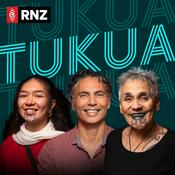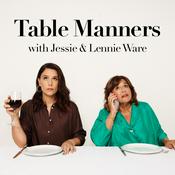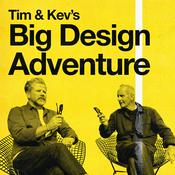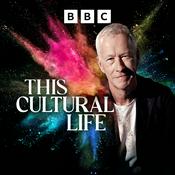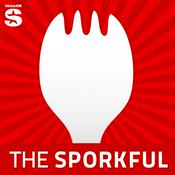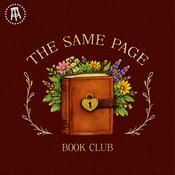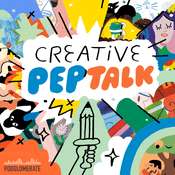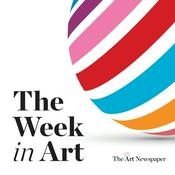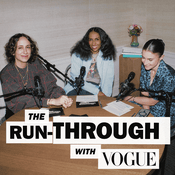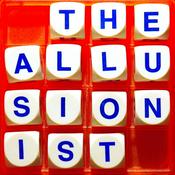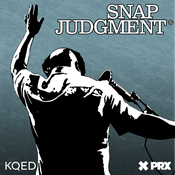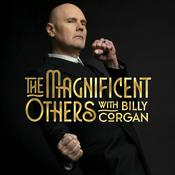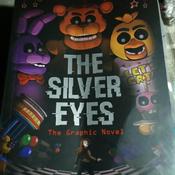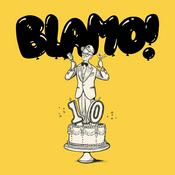213 episodes
- In the thirty years since the Americans with Disabilities Act was signed into law, the lives of disabled people have not improved nearly as much as activists and politicians had hoped. In Crip Negativity (U of Minnesota Press, 2023), J. Logan Smilges shows us what’s gone wrong and what we can do to fix it.
Leveling a strong critique of the category of disability and liberal disability politics, Smilges asks and imagines what horizons might exist for the liberation of those oppressed by ableism—beyond access and inclusion. Inspired by models of negativity in queer studies, Black studies, and crip theory, Smilges proposes that bad crip feelings might help all of us to care gently for one another, even as we demand more from the world than we currently believe to be possible.
J. Logan Smilges (they/them) is assistant professor of English language and literatures at the University of British Columbia and author of Queer Silence: On Disability and Rhetorical Absence (Minnesota, 2022).
Clayton Jarrard is a Research Project Coordinator at the University of Kansas Center for Research, contributing to initiatives at the nexus of research, policy implementation, and community efforts. His scholarly engagement spans the subject areas of Cultural Anthropology, Queer Studies, Disability Studies, Mad Studies, and Religious Studies. Clayton is also a host for the Un/Livable Cultures podcast.
Learn more about your ad choices. Visit megaphone.fm/adchoices Arseli Dokumaci, "Activist Affordances: How Disabled People Improvise More Habitable Worlds" (Duke UP, 2023)
04/1/2026 | 1h 14 mins.For people who are living with disability, including various forms of chronic diseases and chronic pain, daily tasks like lifting a glass of water or taking off clothes can be difficult if not impossible. In Activist Affordances: How Disabled People Improvise More Habitable Worlds (Duke UP, 2023), Arseli Dokumacı draws on ethnographic work with differently disabled people whose ingenuity, labor, and artfulness allow them to achieve these seemingly simple tasks. Dokumacı shows how they use improvisation to imagine and bring into being more habitable worlds through the smallest of actions and the most fleeting of movements---what she calls “activist affordances.” Even as an environment shrinks to a set of constraints rather than opportunities, the improvisatory space of performance opens up to allow disabled people to imagine that same environment otherwise. Dokumacı shows how disabled people’s activist affordances present the potential for a more liveable and accessible world for all of us.
Dr. Arseli Dokumaci, PhD is Assistant Professor of Communication Studies, Canada Research Chair in Critical Disability Studies and Media Technologies, and Director of the Access in the Making (AIM) Lab
A [full transcript of the interview](link) is available for accessibility purposes.
Clayton Jarrard is a Research Project Coordinator at the University of Kansas Center for Research, contributing to initiatives at the nexus of research, policy implementation, and community efforts
Learn more about your ad choices. Visit megaphone.fm/adchoicesGracen Brilmyer and Lydia Tang eds., "Preserving Disability: Disability and the Archival Profession" (Library Juice Press, 2024)
22/11/2025 | 40 mins.A transcript of this interview is available [here]
Preserving Disability: Disability and the Archival Profession (Library Juice Press, 2024) weaves together first-person narratives and case studies contributed from disabled archivists and disabled archives users, bringing critical perspectives and approaches to the archival profession. Contributed chapters span topics such as accessibility of archives and first-person experiences researching disability collections for disabled archives users; disclosure and accommodations and self-advocacy of disabled archivists; and processing and stewarding disability-related collections. Collectively, these works address the nuances of both disability and archives-critically drawing attention to the histories, present experiences, and future possibilities of the archival profession.
Dr. Gracen Brilmyer is an Assistant Professor in the School of Information Studies at McGill University and the Director of the Disability Archives Lab. Their research lies at the intersection of feminist disability studies, archival studies, and the history of science, where they investigate the erasure of disabled people in archives primarily within the history of natural history museums and colonial histories. This historical-archival research is complemented by empirical research on how living disabled people use and experience archives today. Their work has been featured in publications such as The Journal of Feminist Scholarship, Archival Science, and First Monday. Their research is shaped by their experiences as a white, Disabled, non-binary person. For more: here
Dr. Lydia Tang is an Outreach and Engagement Coordinator for LYRASIS. Previously, she held archivist positions at Michigan State University, the Library of Congress, and numerous graduate positions at the University of Illinois, where she received her MLIS and Doctor of Musical Arts degree. Passionate about accessibility and disability representation in archives, she served on the Task Force to Revise the Best Practices on Accessible Archives for People with Disabilities and spearheaded founding the Society of American Archivists’ (SAA) Accessibility & Disability Section (ADS). She is the 2020 recipient of SAA’s Mark A. Greene Emerging Leader Awardand was recognized in three SAA Council resolutions as a co-founder of the Archival Workers Emergency Fund, for spearheading the Accessibility & Disability Section’s“Archivists at Home” document, and for the “Guidelines for Accessible Archives for People with Disabilities.” In addition to her professional service with SAA, she has contributed to accessibility initiatives within DLF Digital Accessibility Working Group and the ArchivesSpace open source software and community by leading the Staff Interface Enhancement Working Group, Development Prioritization subteam, founding the Usability subteam, and chairing the Users Advisory Council.
Learn more about your ad choices. Visit megaphone.fm/adchoices- A transcript of this interview is available [here]
A queer disabled love song to trees and beavers, tremors and dreams, Unfurl: Survivals, Sorrows, and Dreaming (Duke UP, 2025) explores the pulsing core and porous edges of survival, sorrow, and dreaming. Blending poetry and creative nonfiction, emotion and activist thinking, Eli Clare invites us to unfurl ourselves into the lovely multitude of genders beyond the binary of woman and man, the fierceness of street protest, and the long slow time of granite. He sings to aquifers. Wrestles with the aftermath of child abuse and his family’s legacy as white settlers occupying Dakota homelands. He leans into history. Calls the names of the living and the dead. Connects his own tremoring body to a world full of tremors—earthquakes, jackhammers, quaking aspens. Unfurl reveals deep queer kinships between human and more-than-human, sentient and nonsentient. At every juncture, these poems and essays embrace porousness and the power of dreaming. Ultimately, Unfurl is an invitation to rebellion and joy.
Learn more about your ad choices. Visit megaphone.fm/adchoices Vanessa Warne, "By Touch Alone: Blindness and Reading in Nineteenth-Century Culture" (U Michigan Press, 2025)
27/9/2025 | 49 mins.By Touch Alone: Blindness and Reading in Nineteenth-Century Culture (U Michigan Press, 2025) by Dr. Vanessa Warne demonstrates how reading by touch not only changed the lives of nineteenth-century blind people, but also challenged longstanding perceptions about blindness and reading. Over the course of the nineteenth century, thousands of blind people learned how to read by touch. Using fiction, essays, letters, and speeches authored by blind readers, By Touch Alone traces the ways in which literacy changed blind people's experiences of education, leisure, spirituality, and social engagement. Analyzing records of activism and innovation as well as frustration, this study documents the development of an inkless book culture shaped by blind readers’ preferences and needs.
While By Touch Alone features the writing and ideas of an understudied community of nineteenth-century blind authors, innovators, and activists, it also engages the work of sighted authors such as George Eliot and Rudyard Kipling to explore the culture-wide effects of reading by touch. The emergence of a new category of readers who did not rely on sight to read prompted sighted people to reimagine blindness and adopt more progressive attitudes toward blind people. In our own era, one characterized by the increasing digitization of our reading lives, Vanessa Warne’s exploration positions scholars and blind readers to navigate present-day developments and shape the future of their reading lives. A carefully contextualized study of how reading by touch shaped Victorian culture, By Touch Alone adds new chapters to the history of disability and reading.
This interview was conducted by Dr. Miranda Melcher whose book focuses on post-conflict military integration, understanding treaty negotiation and implementation in civil war contexts, with qualitative analysis of the Angolan and Mozambican civil wars. You can find Miranda’s interviews on New Books with Miranda Melcher, wherever you get your podcast
Learn more about your ad choices. Visit megaphone.fm/adchoices
More Arts podcasts
Trending Arts podcasts
About New Books in Disability Studies
This podcast is a channel on the New Books Network. The New Books Network is an academic audio library dedicated to public education. In each episode you will hear scholars discuss their recently published research with another expert in their field.
Discover our 150+ channels and browse our 28,000+ episodes on our website: newbooksnetwork.com
Subscribe to our free weekly Substack newsletter to get informative, engaging content straight to your inbox: https://newbooksnetwork.substack.com/
Follow us on Instagram and Bluesky to learn about more our latest interviews: @newbooksnetwork
Podcast websiteListen to New Books in Disability Studies, The Moth and many other podcasts from around the world with the radio.net app
Get the free radio.net app
- Stations and podcasts to bookmark
- Stream via Wi-Fi or Bluetooth
- Supports Carplay & Android Auto
- Many other app features
Get the free radio.net app
- Stations and podcasts to bookmark
- Stream via Wi-Fi or Bluetooth
- Supports Carplay & Android Auto
- Many other app features

New Books in Disability Studies
Scan code,
download the app,
start listening.
download the app,
start listening.



